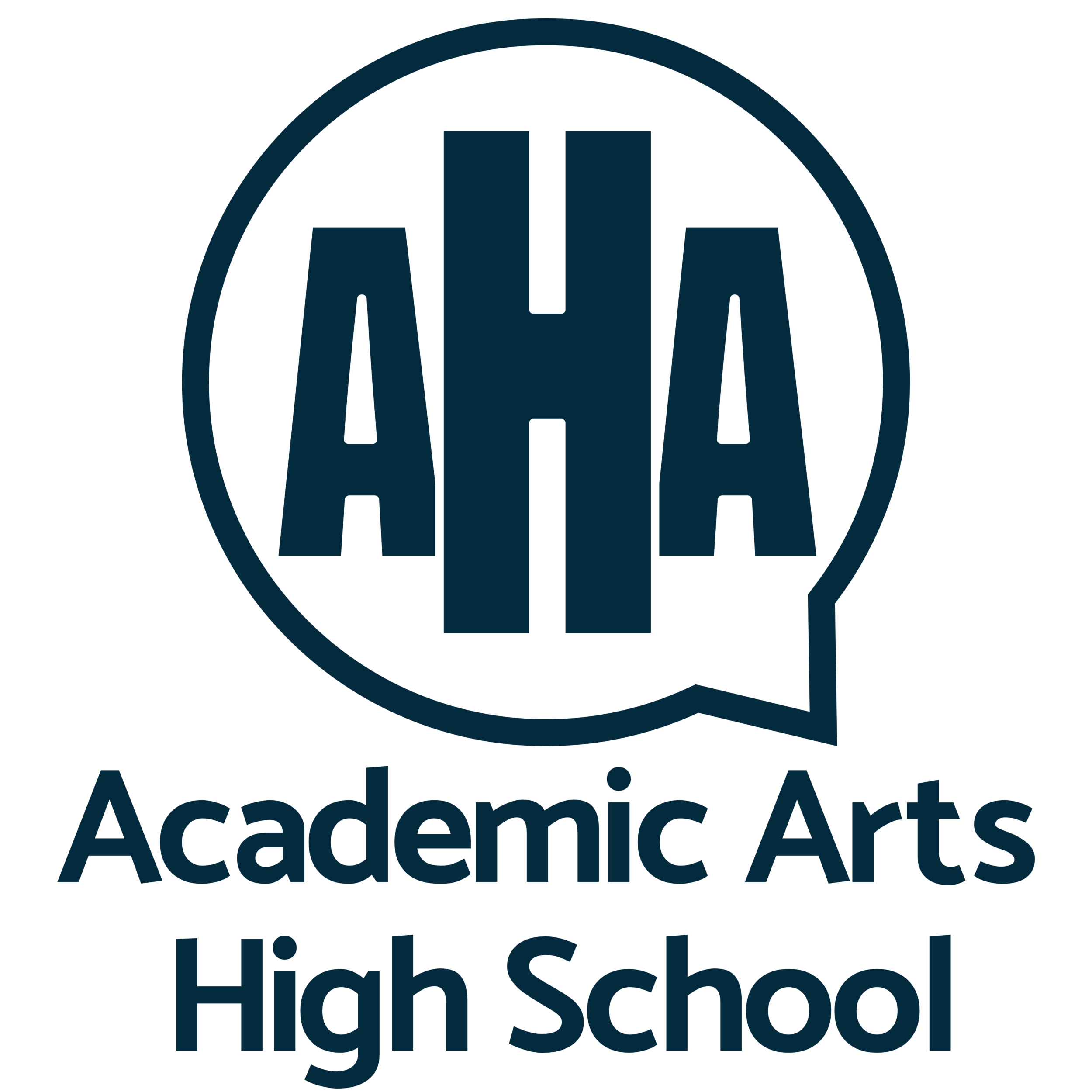Less Testing, More doing.
Learning Program Overview
Our Mission
“Learn by doing, embrace your place in the world, prepare for success, and make friends along the way.”
Our Vision
Our vision is a generation of young people who can navigate the world with the awareness, knowledge, attitudes, and skills necessary to make a positive impact.
Core Values
At Academic Arts High School, we continuously inform our teaching practices to ensure that they are reflective of the values aforementioned in our Mission and Vision. Our curriculum utilizes traditional, research-based teaching methods in combination with project-based learning for core subjects and electives. Students engage in experiences, conversation, problem solving and hands-on learning related to course content, as a means of developing real world readiness. All content is aligned with state standards.
Project-Based Learning
Project based learning within the structure of a class is teacher designed and guided with the expectation being that students display mastery of concepts learned during the course of the class. Exhibition days are held at the end of each quarter. On this day students share their projects with the larger community through displays and presentations. They also interact with and view the work of their peers.
Students who meet certain requirements are able to design their own projects for approval by the school’s curriculum committee which is composed of the General Education teaching staff.
Credit Recovery
The Credit Recovery Program at Academic Arts High School provides students with an opportunity to earn credits for courses they have previously attempted but did not pass. This program is designed to help students stay on track for graduation by offering flexible and targeted support to meet their individual academic needs.
Credit Recovery is usually only offered to 11th and 12th graders, but exceptions can be made on a case by case basis.
Testing Philosophy
Our curriculum does not rely on traditional testing. We believe in order to meet the demands of a 21st century workforce and foster real-world skills, students need to APPLY informed perspectives and knowledge to show mastery of new concepts.
We do utilize traditional methods of testing such as the MCA and NWEA as a means of providing data-driven instruction and to identify student specific needs. Additionally, we have developed our own diagnostic assessments in core subjects to inform our project-based instruction.
Sex Education
Sex Education will be woven into the curriculum during the school year. It’s also a section of the Health courses offered. Teaching Sex Ed is required in the state of Minnesota.
State Law
Minnesota Statutes §§ 120B.20(link is external) and 121A.23(link is external) require every school district to develop and implement a comprehensive risk-reduction program “including but not exclusive to human immunodeficiency virus [HIV] and human papilloma virus [HPV].” While the state has not developed a specific curriculum, each school district must have “a comprehensive, technically accurate, and updated curriculum that includes helping students to abstain from sexual activity until marriage” and must target “adolescents, especially those who may be at high risk of contracting sexually transmitted infections [STIs] and [sexually transmitted] diseases [STDs], for prevention efforts.”
Minnesota also requires each school district to:
[H]ave a procedure for a parent, guardian, or an adult student (18 years of age or older) to review the content of the instructional materials to be provided to a minor child or to an adult student and, if the parent, guardian, or adult student objects to the content, to make reasonable arrangements with school personnel for alternative instruction.



